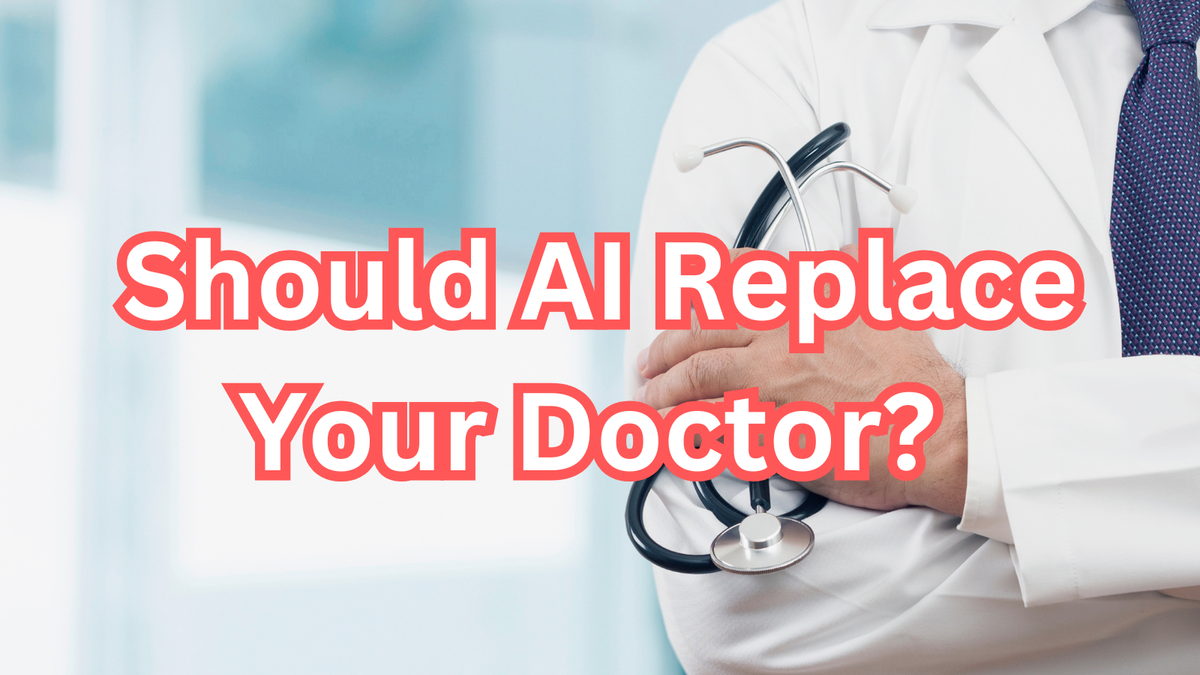Should AI Replace Your Doctor? The British Public Says 'Not So Fast'

AI in Healthcare: A Tool or a Threat to Human Doctors?
Imagine a future where robots diagnose your cancer or perform surgery without a surgeon’s touch. Sounds like sci-fi? Not anymore. But the British public isn’t ready to hand over their health to algorithms just yet. A new Royal College of Radiologists (RCR) survey reveals deep skepticism about replacing doctors with AI—even as the NHS races to adopt the technology. Let’s dive in.
🤖 The Trust Gap: Why Brits Want Humans in the Driver’s Seat
The RCR’s survey of 1,021 adults exposes a critical tension: people want AI’s efficiency but demand human oversight. Here’s the breakdown:
- 🚨 61% support AI speeding up CT/MRI analysis—but only 18% back AI performing surgery solo.
- 🚨 44% are unaware AI is already used in healthcare, despite it being deployed in 70% of radiology departments.
- 🚨 Just 5% would trust fully autonomous AI with no doctor review.
- 🚨 Comfort levels plummet among those unfamiliar with AI: only 3% feel at ease with medical AI vs. 76% of AI-savvy respondents.
The underlying issue? Trust. As RCR President Dr. Katharine Halliday notes: “People trust doctors and want them to oversee AI.” Even tech enthusiasts draw the line at removing human judgment from life-or-death decisions.

✅ The NHS’s AI Playbook: Augmenting, Not Replacing
The NHS isn’t sidelining doctors—it’s betting on AI as a sidekick. Current uses include:
- ✅ Stroke diagnosis acceleration: AI analyzes brain scans 30% faster, saving critical time.
- ✅ Skin cancer triage: New AI tools approved by NICE for initial assessments.
- ✅ Workload relief: 70% of radiology departments use AI to prioritize urgent scans.
Prime Minister Keir Starmer’s vision of a UK “AI superpower” leans into this balance. The goal? Tackle record NHS waitlists (7.8 million in England) by automating grunt work, not patient relationships.
⚠️ The Roadblocks: Awareness Gaps and Ethical Landmines
Despite progress, hurdles remain:
- 🚧 Communication failure: 44% don’t know AI is already in hospitals—eroding trust in future uses.
- 🚧 “Black box” anxiety: Patients fear AI errors going unchecked. As one Ipsos poll respondent said: “Would you sue if a robot misdiagnosed you?”
- 🚧 Workforce fears: 31% see AI as both an opportunity and risk for the NHS, per Ipsos.
Dr. Halliday stresses: “We need a national conversation to build acceptance.” Without transparency, even life-saving tools could face public backlash.
🚀 Final Thoughts: AI as Co-Pilot, Not Captain
The path forward? Hybrid care models where:
- 📈 AI handles repetitive tasks (scan analysis, admin), freeing doctors for complex cases.
- 📉 Strict guardrails ensure human review for diagnoses and treatments.
- 🚀 Investment in public education to demystify AI’s role.
As Ipsos found, 49% believe AI can speed up diagnoses—but only if paired with human expertise. The verdict? AI won’t replace your doctor anytime soon, but it might just make them superheroes. What’s your take: Should AI stay in the background, or is full automation inevitable?
Let us know on X (Former Twitter)
Sources: Storm Newton. British public does not want AI to replace doctors, poll finds, 2025-05-02. https://uk.news.yahoo.com/british-public-does-not-want-230100645.html










